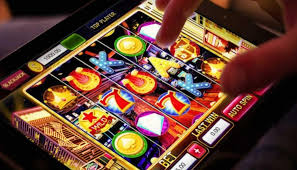
Understanding How RNG Works in Online Gaming
In the world of online gaming, the fairness and unpredictability of games are paramount for both players and operators. This is where How RNG Works in Online Casino Slots betwinner com and many other platforms rely on a technology known as Random Number Generation (RNG). This article will delve deep into how RNG works, its significance in online gaming, and the challenges it faces in ensuring fair play for all.
What is RNG?
Random Number Generators are algorithms designed to produce sequences of numbers that lack any predictable patterns. In the context of online gaming, RNGs serve as the backbone of various games, including slots, poker, and roulette. The primary function of RNG is to ensure that all game outcomes are entirely random, providing a fair chance to all players regardless of their experience level or strategy.
The Mechanics of RNG
At its core, an RNG works by generating numbers at an incredibly fast rate, often several times per second. The most common type of RNG used in online gaming is the pseudo-random number generator (PRNG). PRNGs utilize mathematical algorithms to generate sequences that appear to be random. Here’s how it typically works:
- Seed Value: The process begins with a seed value, which can be derived from various unpredictable sources like mouse movements, time stamps, or hardware interrupts.
- Algorithm Execution: The RNG uses this seed value to run its algorithm, which manipulates it mathematically to create a sequence of numbers.
- Output Generation: The output of the RNG is converted into game outcomes, determining the results players see on their screens.

Types of RNG
While most online casinos use PRNGs, there are different types of RNG technologies:
- True RNG (TRNG): Unlike PRNG, true RNG relies on physical processes to generate random numbers, such as radioactive decay or electronic noise. This method is less common in online gaming due to practicality and cost considerations.
- Cryptographic RNG: This type is designed to be secure and is often used where unpredictable outcomes are critical for security purposes, such as online gambling.
- Hybrid RNG: Some systems may employ both TRNG and PRNG methods to balance speed and randomness, enhancing the overall fairness and unpredictability of the game.
Ensuring Fairness with RNG
Online casinos are heavily regulated, and the utilization of RNG is a critical aspect of maintaining fairness. Regulatory bodies require gaming operators to submit their RNG systems for testing and certification. These audits check that the RNG functions correctly and meets the required standards for randomness.
Additionally, many online casinos use third-party testing laboratories, such as eCOGRA and iTech Labs, to verify that their RNG implementations are functioning as intended. This gives players confidence that the games they are playing are fair and that their chances are just as good as anyone else’s.
The Role of RNG in Different Games
RNG plays a crucial role across various online games:
Slots

In slot games, the RNG determines the outcome of each spin. When a player presses the 'spin' button, the RNG generates a random number that matches a specific combination of symbols on the reels. This process ensures that no two spins can yield the same outcome, providing an exhilarating experience for players.
Card Games
In card games like blackjack or poker, RNG is used to shuffle the deck. As cards are dealt, the RNG ensures that they are randomly selected, preventing any predictability in the game’s outcomes. This enhances the strategic depth of the game while maintaining fairness.
Table Games
For table games such as roulette, RNG is used to simulate the spin of the wheel and the ball’s landing position. Each spin is independent, ensuring that previous results do not affect future outcomes, further enhancing the randomness of the game.
Challenges in RNG Implementation
Despite its effectiveness, there are challenges in implementing RNG systems:
- Manipulation Risks: Although RNG algorithms are designed to be secure, there is always the potential for manipulation. This necessitates robust security measures to prevent breaches.
- Perception of Fairness: Players may harbor skepticism toward RNG systems, particularly if they experience a prolonged losing streak. Developers must work to educate players about how these systems function and the safeguards in place.
- Maintaining Certification: Online casinos must continuously maintain and renew their RNG certifications, ensuring that their systems remain compliant with industry standards.
Conclusion
The integration of RNG in online gaming fundamentally ensures fair play and unpredictability. By understanding how RNG works behind the scenes, players can appreciate the mechanics that contribute to the excitement and fairness of their gaming experience. As technology continues to evolve, RNG systems will likely become even more sophisticated, further enhancing the integrity of online gaming.